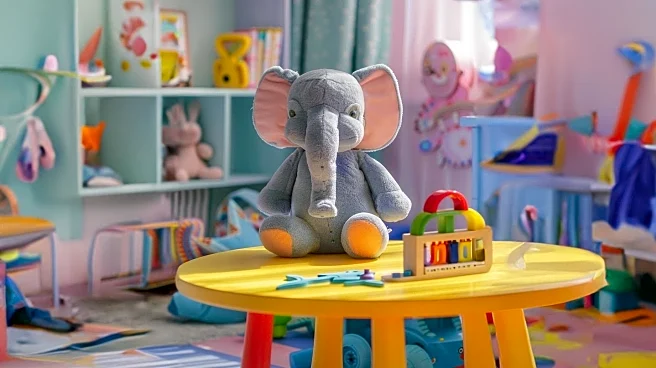What's Happening?
Cas Holman, an expert on play and author of the upcoming book 'Playful: How Play Shifts Our Thinking, Inspires Connection, and Sparks Creativity,' emphasizes the importance of unstructured play for adults.
According to Holman, many adults have abandoned play in favor of productivity, which can negatively impact mental health. He identifies 'play resistance' as a condition where individuals feel guilty for taking breaks or view play as only for children. Holman suggests that engaging in activities purely for enjoyment can boost mental health, relieve stress, and foster creativity. He encourages adults to dedicate at least 10 minutes a day to playful activities, such as dancing or doodling, to reconnect with their inner child and improve overall well-being.
Why It's Important?
The concept of 'play resistance' is significant as it highlights a societal shift towards prioritizing productivity over personal well-being. This trend can lead to increased stress and decreased mental health among adults. By advocating for the reintroduction of play into daily life, Holman addresses a critical aspect of mental health that is often overlooked. The potential benefits of play include increased adaptability, resilience, and creativity, which are essential for personal and professional growth. This perspective challenges the conventional view that play is unproductive, suggesting instead that it is a vital component of a balanced and healthy lifestyle.
What's Next?
Holman recommends that individuals start by recalling a 'play memory' from childhood to reconnect with the joy of play. This approach can help people prioritize play in their lives without needing to make significant changes to their schedules. By integrating playful attitudes into everyday tasks, such as cooking or rearranging furniture, individuals can gradually incorporate more play into their routines. This shift could lead to broader societal changes, encouraging workplaces and communities to value and promote play as a means of enhancing mental health and creativity.
Beyond the Headlines
The emphasis on play as a mental health tool raises questions about the cultural and educational systems that prioritize productivity over creativity. It suggests a need for a cultural shift that values play as a lifelong activity rather than a childhood pastime. This perspective could influence future educational and workplace policies, promoting environments that encourage creativity and well-being. Additionally, it highlights the potential for play to serve as a preventive measure against mental health issues, offering a simple yet effective strategy for improving quality of life.









